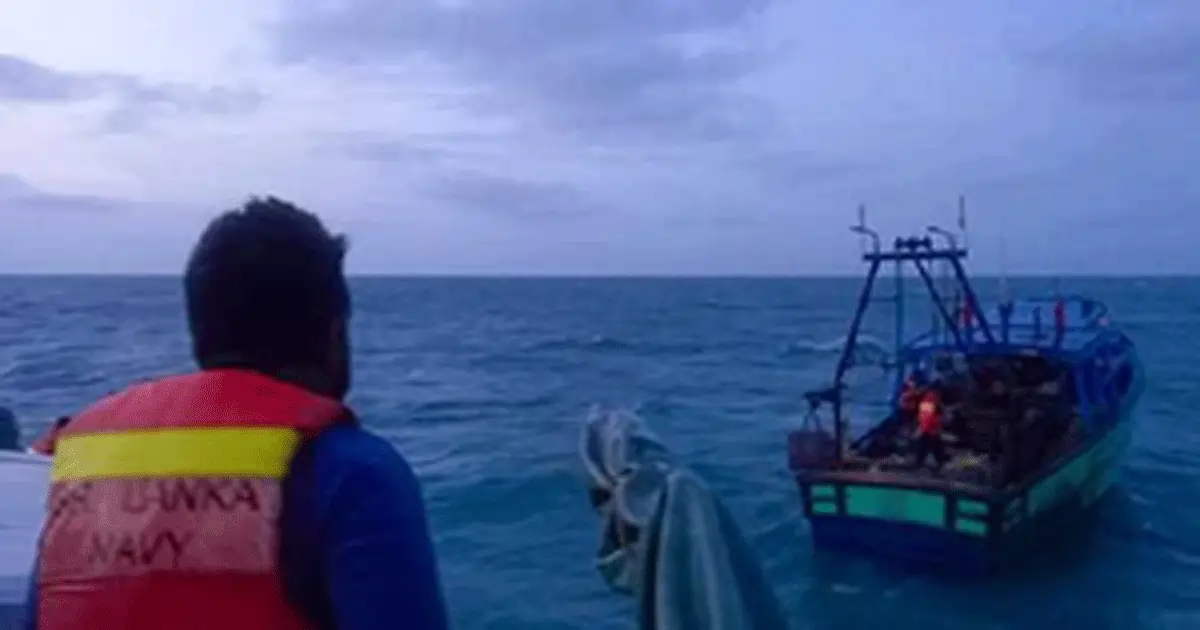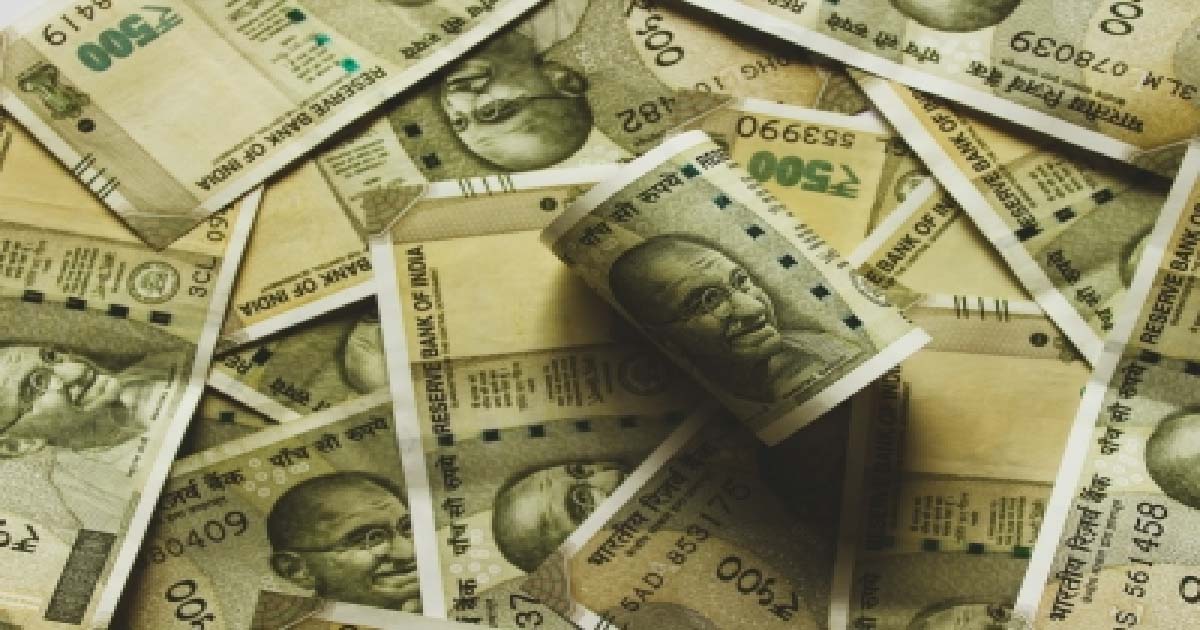International News
India summons Lankan envoy, lodges ‘strong protest’ over firing on Indian fishermen

New Delhi, Jan 28: India on Tuesday summoned the Sri Lankan envoy in New Delhi to lodge a strong protest over an incident of firing by the Sri Lankan Navy during the apprehension of 13 Indian fishermen in the proximity of Delft Island, earlier in the day.
Acting High Commissioner of Sri Lanka to India, Priyanga Wickramasinghe, was summoned by the Ministry of External Affairs (MEA), while the Indian High Commission in Colombo also raised the matter with the Ministry of Foreign Affairs of the Sri Lankan government.
“Out of the 13 fishermen who were on board the fishing vessel, two have sustained serious injuries and are currently receiving treatment at the Jaffna Teaching Hospital. Three other fishermen received minor injuries and have been treated for the same. Indian Consulate Officials in Jaffna have visited the injured fishermen at the hospital to seek their welfare and are extending all possible assistance to the fishermen and their families,” read an MEA statement.
The detained fishermen, hailing from Rameswaram and Pudukottai in Tamil Nadu, were taken to Jaffna, where they are expected to face judicial proceedings. Their mechanised fishing boat was also seized.
The total number of Tamil Nadu fishermen detained by Sri Lankan authorities in the last three days now stands at 47, with three high-value mechanised boats also confiscated.
The recurring arrests underscore the challenges faced by Tamil Nadu’s fishing community, particularly in the Palk Bay region, where fishermen frequently face detentions while pursuing their livelihoods.
“Government of India has always emphasised the need to treat issues pertaining to fishermen in a humane and humanitarian manner, keeping in mind livelihood concerns. The use of force is not acceptable under any circumstances whatsoever. Existing understandings between the two Governments in this regard must be strictly observed,” the MEA statement added.
India had raised the issue during Sri Lankan President Anura Dissanayake’s visit to India, last month. However, despite these discussions, the arrests continue, prompting frustration and fear among fishermen.
Since June 2024, the Sri Lankan Navy has detained 425 Tamil Nadu fishermen and also seized 58 fishing boats.
The frequent arrests have sparked protests and demands for a long-term resolution to protect the livelihood of fishing communities. Former Union Minister and PMK President Anbumani Ramadoss has called on the government to take strong measures to safeguard the interests of the fishermen and prevent further detentions.
The situation emphasises the need for a coordinated diplomatic effort between India and Sri Lanka to resolve maritime boundary disputes and ensure that fishermen can continue their traditional livelihood without fear or uncertainty.
Crime
Intelligence alert: Pak-backed D-company gears up to push in fake notes worth crores before polls in India

New Delhi, Jan 27: With back to back elections set to be held in India this year, Intelligence agencies have warned that the fake currency racket is bound to increase. The Dawood Syndicate which controls this racket from Pakistan, has increased printing of fake notes and the same is being moved to Bangladesh and Nepal.
An Intelligence Bureau official said that they have noticed heightened activity in Malda, West Bengal which is the main landing point for fake currency from the neighbouring country. Those running the racket in Malda have been preparing to receive a massive consignment from Bangladesh, the official added.
Another official said that the Dawood Syndicate will also look to move fake currency through the Nepal border and hence there is a heightened alert. These elements are trying to take advantage of the fact that the security mechanism will be more focussed on the elections and hence they would be able to get away with their nefarious activities.
Officials say that it is important that this menace is controlled at the border itself. Once the fake currency enters the country it is next to impossible to detect, the official added.
The Intelligence agencies who work closely with the forensics department have learnt that the notes are of very high quality and forensic experts believe that the notes are printed on highly sophisticated machines. The Pakistan establishment has invested huge capital to ensure that these notes cannot be detected by the Indian agencies.
Officials say that the fake currency has the perfect watermark formulation. This indicates that the notes are printed on regular currency making machines, which can be owned only by a state.
Intelligence agencies have learnt that fake currency notes to the tune of crores of Rupees were moved into Bangladesh. Most of the fake notes were dropped off using the sea route, the agencies have learnt. The D Syndicate finds this route easier today as there are no checks for Pakistan, thanks to Dhaka’s new soft policy towards Islamabad.
Under Muhammad Yunus the sea route was opened up to Pakistan for the first time. Indian agencies suspect that huge consignments of arms and ammunition have reached Bangladesh using the sea route. The same route is also being used to push the fake currency into Bangladesh.
The challenge would however be to bring it into India. The D Company will try to use both the Nepal and Bangladesh border to smuggle in the fake currency, officials say. While the consignment that comes in from Nepal would be taken to Bihar, the fake notes at the Bangladesh border will be moved into Malda.
From here the notes would be distributed to other parts of the country. Another official added that once the notes land in India, the target states would be the ones where elections are scheduled to be held.
Elections are due in Assam, West Bengal, Tamil Nadu, Kerala and Puducherry. The polls are scheduled to be held between March and May 2026. Officials say that the D gang would try and move most of the fake notes into these states since the security agencies would be too busy with the elections.
The agencies are keeping a close watch on the border areas. The alert is high in Malda and the neighbouring areas, as the Intelligence agencies say that the biggest consignment would land in these places.
International News
PM Modi welcomes UAE President at airport, hails strong friendship between both nations

New Delhi, Jan 19: In a special gesture, Prime Minister Narendra Modi on Monday travelled to the Delhi airport and personally welcomed UAE President Shaikh Mohamed bin Zayed Al Nahyan as he began his third official visit to the country since assuming office.
Both leaders also travelled together in the same car from the airport, showcasing their longstanding friendship and the multi-faceted partnership between the two countries. This is the UAE President’s fifth visit to India over the past decade.
“Went to the airport to welcome my brother, His Highness Shaikh Mohamed bin Zayed Al Nahyan, President of the UAE. His visit illustrates the importance he attaches to a strong India-UAE friendship. Looking forward to our discussions,” PM Modi posted on X.
Shaikh Mohamed bin Zayed Al Nahyan’s India visit builds on the strong momentum generated by recent high-level exchanges, including the visit of Shaikh Khaled bin Mohamed bin Zayed Al Nahyan, Crown Prince of Abu Dhabi in September 2024, and the visit of Shaikh Hamdan bin Mohammed bin Rashid Al Maktoum, Deputy Prime Minister and Minister of Defence of the UAE and Crown Prince of Dubai in April 2025.
“India and the UAE share warm, close, and multi-faceted relations, underpinned by strong political, cultural, and economic ties. The two countries are among each other’s top trading and investment partners, bolstered by the Comprehensive Economic Partnership Agreement (CEPA), the Local Currency Settlement (LCS) system, and the Bilateral Investment Treaty. India and the UAE also enjoy a robust energy partnership, including long-term energy supply arrangements,” read a statement issued by the Ministry of External Affairs (MEA) ahead of the UAE President’s visit.
“The visit will provide an opportunity for the two leaders to chart new frontiers for the India–UAE Comprehensive Strategic Partnership. It will also enable an exchange of views on regional and global issues of mutual interest, where India and the UAE share a high degree of convergence,” it added.
International News
Trump says US reshaped global dynamics

Washington, Jan 17: President Donald Trump said that his administration had reshaped global dynamics through assertive diplomacy and military action, laying out an expansive account of US foreign policy and economic gains during remarks at a Florida event.
Trump said US actions abroad had produced swift and decisive outcomes. “We have peace in the Middle East. Nobody thought that was going to be possible,” he said, pointing to what he described as multiple agreements reached within a year.
He also claimed “US intervention” helped avert conflict between two nuclear nations — India and Pakistan, and said the effort saved “many millions of people.”
Trump said Iran’s nuclear ambitions had been dismantled, declaring that the United States had “obliterated Iran’s nuclear enrichment capacity with Operation Midnight Hammer.” He also cited operations against militant leaders, including the founder of ISIS and Iranian General Qassem Soleimani, arguing that decisive military action had strengthened US security and deterrence.
Trump said the United States had apprehended Venezuelan President Nicolas Maduro, describing him as an “outlaw” and asserting that “no other nation in the world could have done” what the United States achieved. He said the move was part of a broader effort to reset relations and relieve regional pressures.
The president said the United States had attracted unprecedented levels of foreign investment. “We have $18 trillion being invested,” he said, adding that the total could rise further.
He credited tax cuts, regulatory rollbacks and tariffs for driving growth and said manufacturing activity was expanding at historic levels. “We’re building more factories in the United States now than at any time in our history,” he said, citing both automotive and advanced technology sectors.
Trump said tariffs played a central role in pushing companies to shift production to the United States. “They don’t want to pay the tariffs,” he said, calling it a “pretty simple formula.” He also pointed to stock market performance and retirement savings, saying 401(k) accounts were “doing better than they’ve ever done before.”
On immigration, Trump said his administration had fully secured the southern border, describing illegal crossings as an “invasion” that had been halted. He said enforcement efforts focused on violent criminals and gangs, while legal immigration continued through established processes.
-

 Crime3 years ago
Crime3 years agoClass 10 student jumps to death in Jaipur
-

 Maharashtra1 year ago
Maharashtra1 year agoMumbai Local Train Update: Central Railway’s New Timetable Comes Into Effect; Check Full List Of Revised Timings & Stations
-

 Maharashtra1 year ago
Maharashtra1 year agoMumbai To Go Toll-Free Tonight! Maharashtra Govt Announces Complete Toll Waiver For Light Motor Vehicles At All 5 Entry Points Of City
-

 Maharashtra1 year ago
Maharashtra1 year agoFalse photo of Imtiaz Jaleel’s rally, exposing the fooling conspiracy
-

 National News1 year ago
National News1 year agoMinistry of Railways rolls out Special Drive 4.0 with focus on digitisation, cleanliness, inclusiveness and grievance redressal
-

 Maharashtra1 year ago
Maharashtra1 year agoMaharashtra Elections 2024: Mumbai Metro & BEST Services Extended Till Midnight On Voting Day
-

 National News1 year ago
National News1 year agoJ&K: 4 Jawans Killed, 28 Injured After Bus Carrying BSF Personnel For Poll Duty Falls Into Gorge In Budgam; Terrifying Visuals Surface
-

 Crime1 year ago
Crime1 year agoBaba Siddique Murder: Mumbai Police Unable To Get Lawrence Bishnoi Custody Due To Home Ministry Order, Says Report












